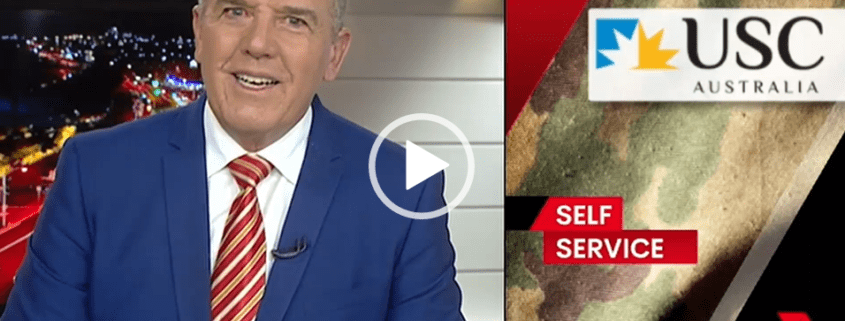https://www.usc.edu.au/about/usc-news/news-archive/2022/april/veterans-offer-untapped-resource-for-economy-research-shows
“New business research led by the University of the Sunshine Coast has investigated how military veterans transition to self-employment, recommending it as a career option for other veterans.
USC researcher Dr Saskia de Klerk said that with 5,500 Australian Defence Force veterans moving into civilian life each year, the results indicated that veterans as entrepreneurs could be an untapped resource for the Australian economy.
“About 10 percent of America’s small businesses are owned by former US military and, while we don’t yet have an Australian statistic, our local sample showed the potential for individual success and positive flow-on effects,” said the International Business academic who headed the USC team collaborating with UNSW Canberra.
The research reports on the findings from interviews with 20 former ADF personnel and support organisations. These former ADF personnel started their own businesses in professions, manufacturing, training, and education services.
“While few veterans considered this an obvious career path, those who did used a combination of skills learned in the military and skills acquired through further education and experience,” Dr de Klerk said.
“Some of the difficulties faced include a lack of information or emotional support, financial adjustments, settling into civilian routines and structures, communicating skillsets, isolation or stigma.
“However, they overcame these by combining their existing technical, teamwork, personal, and management skills with new learning in marketing, sales and accounting.
“The benefits of self-employment extended to mental health, such as having the autonomy and flexibility to manage their own wellbeing and achieve that sense of satisfaction.”
Caloundra-based David Neal, who co-founded The Eighth Mile Consulting three years ago with his former Australian Army captain mate Jonathan Clark, participated in the USC study.
They provide leadership and personal development programs, keynote speaking, short courses, and services in executive coaching, leadership training, strategy development, project and change management.
Canberra-raised Mr Neal, who left the Army in 2017 after 13 years including a long tour of Afghanistan, said he also wanted to empower fellow veterans in their chosen fields through networking and showcasing their skills to the wider community.
“It was a leap of faith after leaving the Army but I’m now standing in our new office at Caloundra, with its recording facilities for training and broadcasting live, and I live down the road with my wife and three kids, and I couldn’t be happier,” he said.
“We have international and national clients in the food sector, mining, aviation and dentistry, and the Sunshine Coast’s booming economy has plenty of opportunities too.”
He said strategic use of social media was key to expanding the business, which made LinkedIn’s Top 20 Voices and won its category of the 2021 Sunshine Coast Business Awards.
Mr Neal, who completed two degrees in the military including management, said discipline and determination were important traits when founding a business with few resources.
With a staff of four and a network of specialist contractors, many also military veterans, the consultancy supports other businesses in changing their operations while minimising risks.
“Now, we employ veterans because of their strengths. They think outside the box and have a team mentality. They’ve led huge groups doing dangerous, complex work but sometimes don’t know how to communicate the potential of this in a civilian context. We help.”
The research team comprised USC’s Dr de Klerk, Professor Karen Becker, Dr Margarietha de Villiers Scheepers and UNSW Canberra’s Dr Matthew McCormack, a former Royal Australian Navy logistician of 31 years.
In their report to industry, they offered tips for future veteran entrepreneurs:
- Do something you’re passionate about;
- Collaborate, get a mentor, link with veteran support organisations;
- Be realistic in planning and flexibility;
- Outsource or use existing experience;
- Go part-time first to test your idea, keep learning.”



Trackbacks & Pingbacks
[…] Veteran lens […]
Leave a Reply
Want to join the discussion?Feel free to contribute!